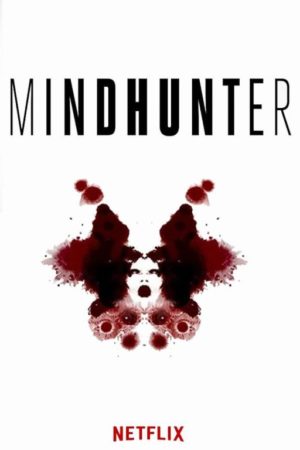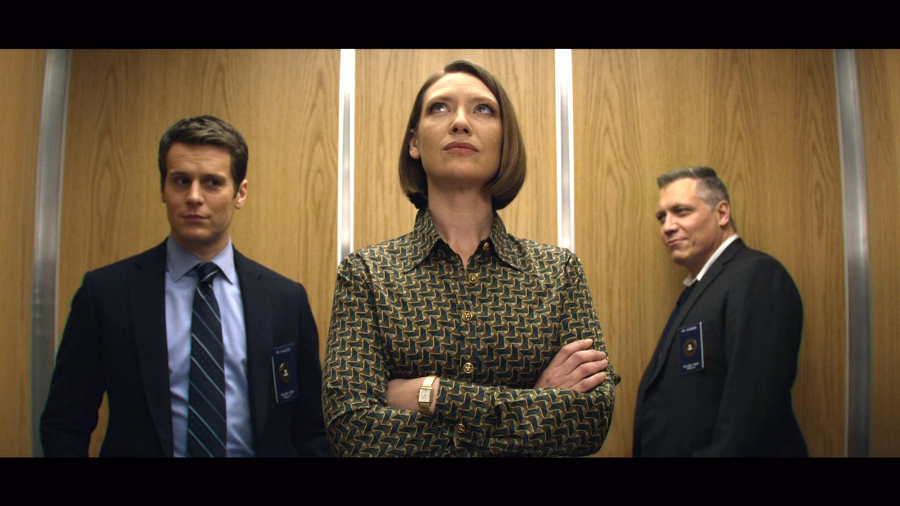New Netflix series explores the ‘Why?’ behind serial killing
Netflix’s new series “Mindhunter” tells the story of FBI agents Holden Ford and Bill Tench as they interview the most dangerous killers in the U.S. to help understand their motives. This series delves into the darkest and most dangerous recesses of the human mind.
October 19, 2017
Over the last decade, Netflix has created a wide variety of shows, including comedies, superhero series, various dramas, and children’s cartoons. Now it’s time to adventure into the terribly twisted world of serial killers with Netflix’s latest original series, “Mindhunter.”

“Mindhunter” has an interesting, unique take on the serial killer genre of television, focusing on interviewing convicts instead of solely tracking down free killers. Despite this premise, a strong cast, and terrifying performances from the actors playing the criminals, this show falls into several pitfalls too often seen in Netflix originals: a weak side romance, broken up storylines, and too much filler.
It’s the late 1970s and FBI agent Holden Ford is witnessing a terrifying change in crime across the nation: more and more gruesome crimes are being committed between strangers with no obvious reasons. With the help of experienced FBI agent Bill Tench and Professor Wendy Carr, Agent Ford will interview the worst criminals and sociopaths across the United States in order to understand their psychology. As Holden gains more and more insight into these men’s minds, he risks his health, his career, and even his sanity.
Viewer discretion is heavily advised as this show contains adult themes, language, and content not appropriate for young audiences.
The series begins with Agent Ford joining Agent Tench in the “Road School” program, where the two men travel across the nation and share FBI investigative techniques with local police forces. Tench is only looking for an assistant with the Road School work, but Ford is fascinated by criminal psychology and is hoping to learn more about the mindset of violent criminals at Tench’s side. When a local policeman asks them for help regarding the grisly murder of a woman and her son, the two FBI Agents realize they simply have no idea how to help. Holden decides that it’s up to them to learn all that they can from the nation’s best authorities on serial killing: serial killers.
Viewers of “Mindhunter” should not expect another “cop team hunts for a serial killer every episode” style show that everyone has seen a hundred times. The primary plot of “Mindhunter” is the establishment and early days of a small yet important FBI study into the minds of the criminally deranged. In this show, violent murder cases do appear that the team tries to help solve, but these cases are usually plot devices that reflect the team learning from their most recent criminal interviewee.
“Mindhunter” as a show has a very unique style. One of the show’s interesting aspects is the lack of conventional suspension buildup, particularly regarding the opening of each episode. In the average TV series, the cold open of the show is short, sweet, and ends with a dramatic introduction of that episode’s main conflict. The opening credits roll, and the next scene following the intro will be more dialed back in tension levels. In “Mindhunter,” eight of the ten cold opens are not in any way related to the plot of that episode, and there is no big reveal or shocking development before the introductory credits begin.
Based on preference, this slower, unique style will either be cinematically interesting to view or downright boring. There’s no question about it, this show struggles to gain momentum at times. Netflix appears to be taking advantage of their ability to dump all of their episodes at once and rely on viewers binge-watching tendencies. The effort to make each episode stand on its own is there. However, viewers will realize that some two-hour plot lines were cut in half for two one-hour episodes. In the end, that’s not what most viewers are looking for.
The greatest strengths of “Mindhunter” come from the intense interview scenes between the agents and their criminal subjects. The murderers in this show have an ability to discuss their nightmarish crimes with a casual nature that is nothing short of fascinating. If this show has any appealing aspects, this is the largest one. The best performance in the show comes from Cameron Britton, who plays Ed Kemper, the real-life Coed Killer. Britton’s performance is chilling because he is able to sit back, relax, and slowly discuss decapitating his mother with great detail, referring to his crimes as his “vocation.”
The least forgivable and sadly the largest flaw in this show was its treatment of the romance between Holden Ford and his girlfriend Debbie. Holden, an intelligent, driven FBI agent, is reduced to a boring young boyfriend stereotype, which is more than can be said for Debbie. Her character has all of the flavor of untoasted bread. Viewers have every right to be disgusted by the monotony of their stereotypical love life.
“Mindhunter” presents intriguing and twisted dialogue between the main characters and a variety of criminals. This show consists (for the most part) of an entertaining cast of characters played by talented actors. However, there are too many frustrating lulls in the show and one pathetic excuse for an interesting male-female love relationship. Hopefully, this newest Netflix show won’t have viewers hunting their own minds for better things to do.








